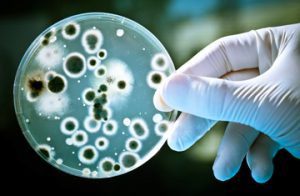Water filters – discover the facts
 Water filters remove a wide range of contaminants in your water. Although city water supply systems use filtration processes, many contaminants including disease-causing organisms nevertheless get through to your household water supply.
Water filters remove a wide range of contaminants in your water. Although city water supply systems use filtration processes, many contaminants including disease-causing organisms nevertheless get through to your household water supply.
Water filters are eco-friendly because they consume minimal amounts of energy and do not create more than small amounts of waste. These devices can significantly reduce the bacteria content in water while removing unpleasant odors and tastes.
There are many kinds of water filters available today. You need to give careful thought to your specific requirements to zero in on one that is right for you.
In most cases, using a water filter will ensure that you consume water of a higher purity than that of either tap water or bottled water. In addition, many water filters improve the taste of water. Studies show that many people suffer from chronic mild dehydration, which leads to daytime lethargy and other problems. Better tasting water may well encourage people to drink sufficient quantities of water every day.
It should be no surprise that many homes have these filters installed to provide clean water for drinking and for cooking. Some people prefer to use portable filtering devices placed on a countertop or within a refrigerator.
Countertop Water filters
Countertop filters can be highly effective; there are many types of filtration systems used in these devices. Some make use of a process called reverse osmosis, while others are use filters specially designed to get rid of lead, fluoride or bacteria. There are also filters that can effectively remove pesticides, iron, cadmium, mercury and many other dangerous contaminants present in water. Water filters generally use replaceable cartridges.
Reverse Osmosis Filtration
The reverse osmosis process for water purification is referred to as Ultra Filtration in industry jargon. It is also called membrane technology and is considered to be state of the art. In addition to removing heavy metals, viruses and bacteria, reverse osmosis can remove organic impurities, salts as well as dissolved contaminants. Reverse osmosis will also remove particles, chlorine and many other types of chemicals.
Activated carbon water filters containing granular or solid carbon are another commonly used type of filter. They can be fairly economical and come in many designs and sizes.
Activated carbon filters typically use a multi-stage filtration process. The water to be purified flows through sand, multimedia filters and several layers of carbon. This ensures a better filtration effect.
Granular activated carbon filters can remove compounds like salt as well as most pesticide residues and chlorine. At the same time, it does not remove essential minerals. Contaminants present in water form a chemical bond with activated carbon, which results in their removal.
Many types of chemical filters are also available. They are however, fairly expensive. Chemical water filters are effective at removing organic materials, chlorine and many other impurities, while simultaneously getting rid of unpleasant odors.
Some people claim that water filters are unnecessary and that it is better to rely on bottled water. There are two problems with this argument.
In the first place, studies show that bottled water is no purer than ordinary tap water. Indeed, many bottled water is just tap water. This makes it suspect from a health point of view. Secondly, bottled water is very expensive. Not surprisingly, it is a booming multi-billion dollar business and growing rapidly.
If you are a regular user of bottled water, add up the cost of bottled water purchases over a year. That should quickly convince you to invest in a high-quality water filter system for your home. Water filters can enhance the safety of drinking water – and do it economically.
Related Links:
Reverse Osmosis Water Treatments Process
Reverse Osmosis Water Treatment
Home Reverse Osmosis System vs. Bottled Water: A Cost Comparison
Why are you looking for a home water filter?
Chemical Odour Control – Masking or Neutralization?
More Relevant Information:
A Guide to Drinking Water Treatment Technologies for Household Use
- How do you use SodaStream Duo – Step by Step Guide? - February 6, 2024
- Why Choose Tankless Systems? Discover the Best Tankless Reverse Osmosis Systems in Cyprus - December 18, 2023
- Comparison of Chlorine vs Chlorine Dioxide: Which is the Superior Sanitizer? - June 25, 2023
